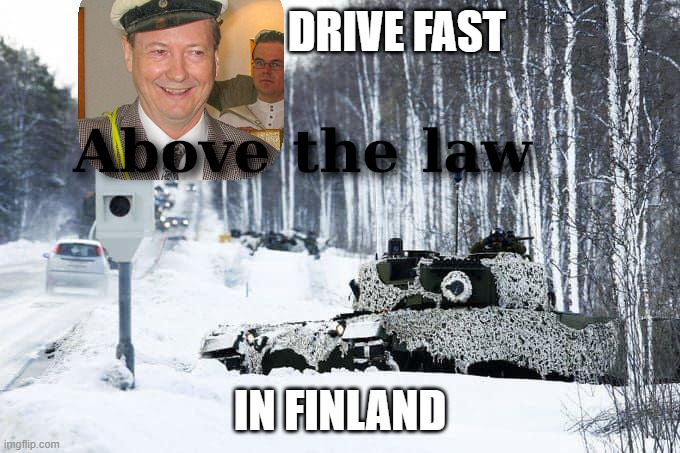
9c1516d50d84c7705c455675783d9215
 Summary: Perceived corruption in Finland may be relatively low, but that's because it is difficult to spot (for an outside observer); as we shall show in this series, nepotism is a big problem and law enforcement/authorities engage in selective enforcement (benefiting the well-connected individuals)
Summary: Perceived corruption in Finland may be relatively low, but that's because it is difficult to spot (for an outside observer); as we shall show in this series, nepotism is a big problem and law enforcement/authorities engage in selective enforcement (benefiting the well-connected individuals)
This video regarding part 3 of the series speaks about the history of the region, which I last studied earlier this year (my understanding is that in terms of language and ethnicity there's still some overlap with Russia, albeit Swedish or English -- not Russian -- are the second languages in Finland, tourism notwithstanding). I speak about the role of Finland in pushing for European software patents, notably through Nokia (we've been covering this for many years, going back to the Symbian days). The video doesn't just read through part 3 (parroting text would be pointless). It prepares us for "The Besieged Baltic States – Part IV" -- the next part among ~20 in total -- which is due to be published within a day or less. It will help show the level of covert or low-key corruption and nepotism in Helsinki. Like in many other parts of the world, the political sphere reserves its powerful roles to people of blind loyalty, not jacks of all trades, and this, in turn, derails countries. That's also how Nokia was fatally injured after the arrival of a mole from Microsoft. Diligence and devotion to party politics (or cliques/cult) aren't the same as patriotism. Irrational adherence -- even at the expense at the law -- can be detrimental to nations, companies, and scientists. The corrosive effect we observed at Nokia is, at the very least, a cautionary tale.
"Criminals tend to gravitate towards other criminals because they're a lot less likely to turn each other in or send tips/leads to cops."We keep reminding readers that the goal isn't to 'bash' Finland but to highlight the background and the context of EPO abuses by Benoît Battistelli, whose abuses are covered up and further extended by his French-Portuguese pal, António Campinos. Criminals tend to gravitate towards other criminals because they're a lot less likely to turn each other in or send tips/leads to cops. And in corrupt nations the cops might not do much anyway; police chiefs and justice officials can themselves be the aggressive criminals, as we recently saw in North Macedonia.
As George Carlin famously put it: "It's a big club and you ain't in it" (Invidious link). ⬆